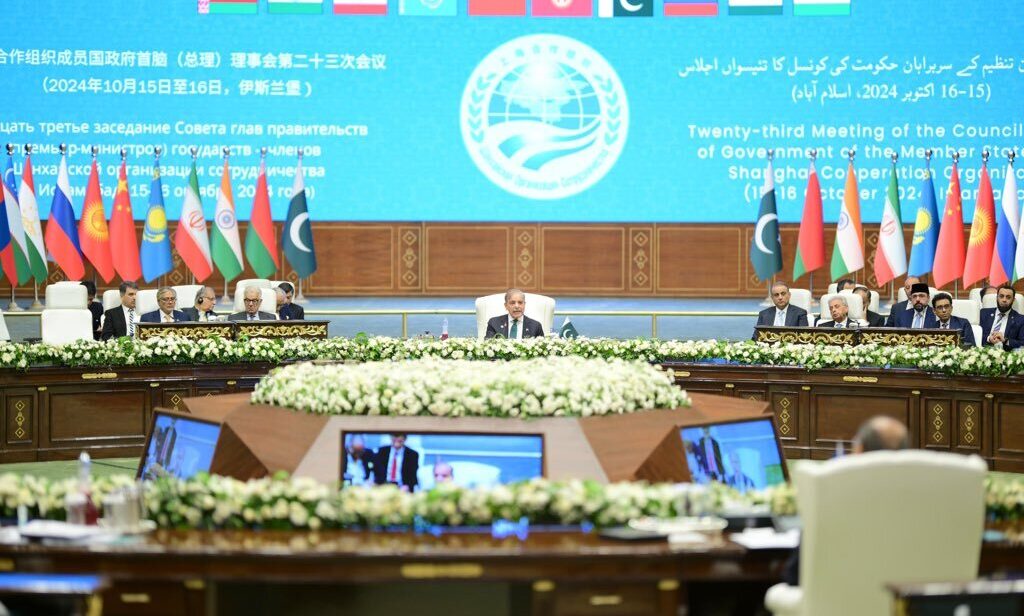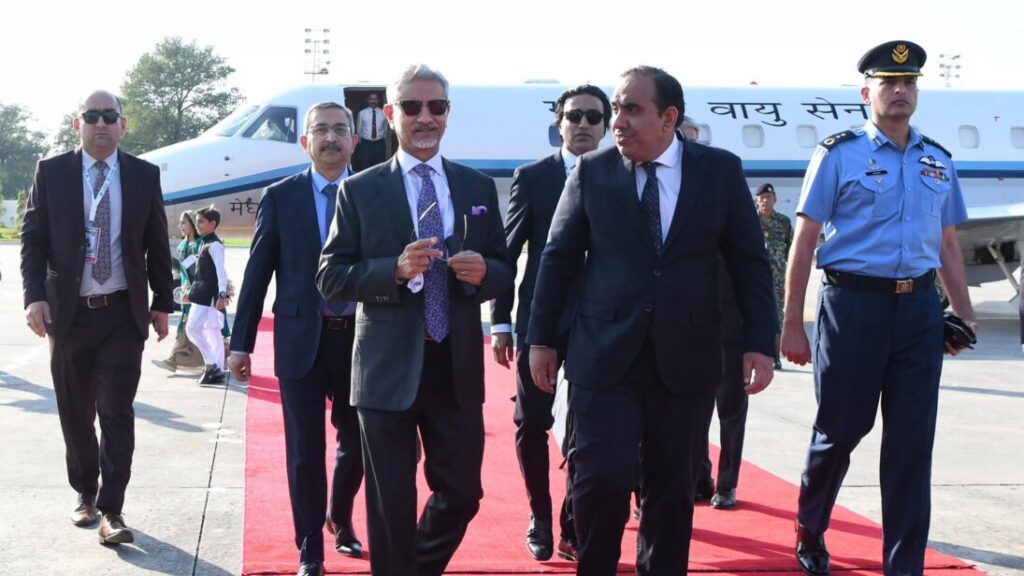
After a significant hiatus, Pakistan became the center of international attention by hosting dignitaries from the Shanghai Cooperation Organization (SCO) member states, observers, and special guests on October 16 in Islamabad. Most notable, however, was Indian External Affairs Minister Subrahmanyam Jaishankar’s attendance.
With 900 high-level delegates in attendance, the summit provided Pakistan with a moment to shine on the global stage. It was a chance to challenge the narrative of Pakistan’s diplomatic isolation and to shift perceptions of the nation from one grappling with economic and political challenges to that of an important regional player. Further, the beginnings of a thaw in the Pakistan-India relationship visible at the SCO summit can also be counted as a win for Islamabad.
Issues in the Spotlight
The SCO summit offered Pakistani leadership an opportunity to showcase the country as an important regional stakeholder with much to offer as well as draw attention to the challenges facing the country and the region. In his opening remarks, Prime Minister Shehbaz Sharif stressed the need for regional peace and stability as well as human security to achieve socio-economic progress for the peoples of all member states. He also underscored the importance of the China-Pakistan Economic Corridor (CPEC), a flagship project under China’s Belt and Road Initiative that extends into the Eurasian region, as a symbol of Pakistan’s strong commitment to economic development and regional connectivity within the SCO framework.
The summit’s agenda focused on three main issue areas: security (with an emphasis on Afghanistan), climate change, and economic cooperation. Sharif highlighted how Pakistan in particular faces significant hurdles in these areas, stressing how the country continues to grapple with security threats from Afghanistan, the devastating impacts of the 2022 floods, and economic challenges. He noted that Pakistan’s experiences with these crises could provide valuable insights for SCO members to develop a collective strategy to address shared challenges and bolster regional resilience.
Having faced devastating floods in 2022, the summit also offered a timely platform for Pakistan to seek partnerships that would enhance its ability to protect and uplift its population and that of the region in the face of such natural disasters. Pakistan’s poor infrastructure and response systems necessitate international cooperation to promote security in addition to climate resilience and disaster management. While the SCO and the upcoming Conference of Parties to the United Nations Framework Convention on Climate Change are good avenues for this, the potential thaw visible between Pakistan and India at the summit could also create space for climate collaboration.
India-Pakistan Ties in Focus
One of the major headlines of the 2024 SCO summit was Jaishankar’s unexpected attendance. His visit marked the first time in nine years that a high-level Indian official publicly attended an event in Pakistan. His cordial informal interaction with Pakistani officials and some positive movement in people-to-people ties recently have raised hopes of a thaw in relations between the two nations and seen as a significant diplomatic success for Pakistan at the SCO forum.
Before the summit, Jaishankar had adopted a resolute stance against engaging in bilateral talks with Pakistan. However, his approach softened by the end of the summit. His body language, along with a widely circulated video of the Indian and Pakistani foreign ministers sharing a table at a luncheon, surprised many observers. Shortly after the summit, India granted visas to 82 Pakistani pilgrims to visit the shrine of Hazrat Nizamuddin Aulia, a Sufi saint, while Pakistan and India renewed the Kartarpur Corridor agreement, allowing visa-free access for Sikh pilgrims from India to visit Gurudwara Darbar Sahib Kartarpur, in Narowal, Pakistan.
Improved relations between the two countries would not only benefit them individually but also foster regional stability and development. At a national level, revived trade would bolster the economies of both India and Pakistan, while enhanced people-to-people connectivity would contribute to a more peaceful and cohesive region. Key regional initiatives that have been stalled due to India-Pakistan tensions, such as the Turkmenistan-Afghanistan-Pakistan-India (TAPI) gas pipeline and the Iran-Pakistan-India (IPI) pipeline, may now receive a boost. Further, Islamabad and New Delhi can explore cooperation on shared climate challenges, which could contribute to a more resilient region. A reduction in hostilities also increases the likelihood of India participating in sporting events in Pakistan, such as the 2025 ICC Champions Trophy, which would promote goodwill and further improve bilateral relations.

Key Takeaways from the Summit
The summit concluded with eight documents, including the joint communique, covering regional issues that member states want to prioritize, such as security, trade, investment, climate change, and public health, among others. For Pakistan, the SCO Regional Anti-Terrorism Structure (RATS) has potential to strengthen its counterterrorism and digital security efforts by offering a unified platform to tackle extremism, cross-border threats, and digital propaganda. Additionally, the New Economic Dialogue could open doors for Pakistan to expand trade with, attract investment into CPEC from, and negotiate energy partnerships with Central Asian states and Russia. These initiatives would not only deepen Pakistan’s regional ties but could also support its socio-economic recovery.
In return, Pakistan’s involvement in the Global War on Terror makes it a vital asset for RATS, and Islamabad could share its experiences and lessons learnt with the region. It could also offer trainings or share best practices to enhance the operational capabilities of SCO states in this domain.
For Pakistan, this summit was more than just a diplomatic gathering. Despite its own struggles, Islamabad proved its resilience, successfully and safely hosting the summit, showcasing its strengths and building meaningful connections. Pakistan’s engagement with the SCO and potential membership in BRICS suggest its desire to shape a stable, connected, and secure future for the entire region. Here, again, India could have a key role to play as an easing of tensions between Islamabad and New Delhi could open up avenues for greater regional integration. This moment could be the start of something larger—a chance for Pakistan to redefine its role and create a more impactful presence in the regional and global arena.
source : southasianvoices
